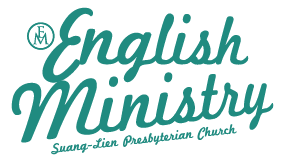(REFLECTIONS ON EZEKIEL 29:1-21)
Children learn from a very early age the concept of possession. Very early on, perhaps before they can put together an entire sentence, many children learn the concept of “mine!” Mine means, this is my possession, it is solely for me, I am in control of it, and you cannot have it.
That is why when parents begin hearing children say, “mine!” they will teach the child how to share, hoping that the child will learn a sense of “ours,” and not succumb at such an early age to selfishness. The Sovereign Lord is against Pharaoh king of Egypt in today’s Scripture saying, “I am against you, Pharaoh king of Egypt, you great monster lying among your streams. You say, ‘The Niles is mine: I made it for myself.'”
The Pharaoh sounds like an adult that has not grown up on the inside, has not learned to share, and is too self-focused. We can almost hear the pouting sound of the Pharaoh saying, “mine, mine, mine!” can’t we? However, with much narcissistic behavior, although we may be dealing with physical adults, what lies behind the appearance of an adult are childish monsters that only know the words “mine, mine, mine!” and “me, me, me!”
Shouldn’t Egypt have learned from its history? Shouldn’t have the Pharaoh learned from his predecessor? For Egypt was once punished because of Pharaoh’s hardened heart, when he would not let the Israelites go to the wilderness to worship their God.
Perhaps we find these tendencies in our lives as well. Times when we think to ourselves, “mine, mine, mine!” or “me, me, me!” If today’s reading resonates with us to any extent, may we come to the Lord in prayer and pray for forgiveness because at times we forget that all that we have has been given by Him. We should treat all that we have as blessings, rather than what is deserved, and just as the Lord has shared with us, may we in turn learn to share with others as well.
What are we holding in our hands, that we have a hard time putting down or a hard time sharing? Perhaps those are the things that we can use for kingdom purposes and should not try to hold onto them only for ourselves. What do we consider as ours? Our money, time, possessions? Are these things truly ours, or are they blessings from the Lord for us to be stewards of, rather than possessors of?
The Israelites forgot that the promised land was the Lord’s, and they thought it would be theirs forever. Pharaoh forgot that the Nile was the Lord’s, and therefore the Lord was against the Pharaoh. What have we forgotten is the Lord’s, and should we loosen our grasp on these things, and even on our very lives, so that the Lord’s blessings can be a blessing to others besides just ourselves?
Pastor Michael Lu
Enduring Word Bible Commentary: Ezekiel 29



0 Comments